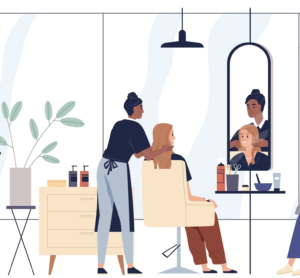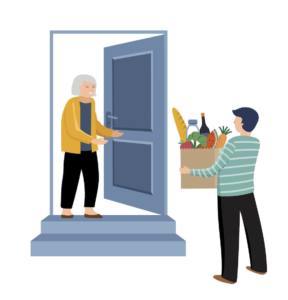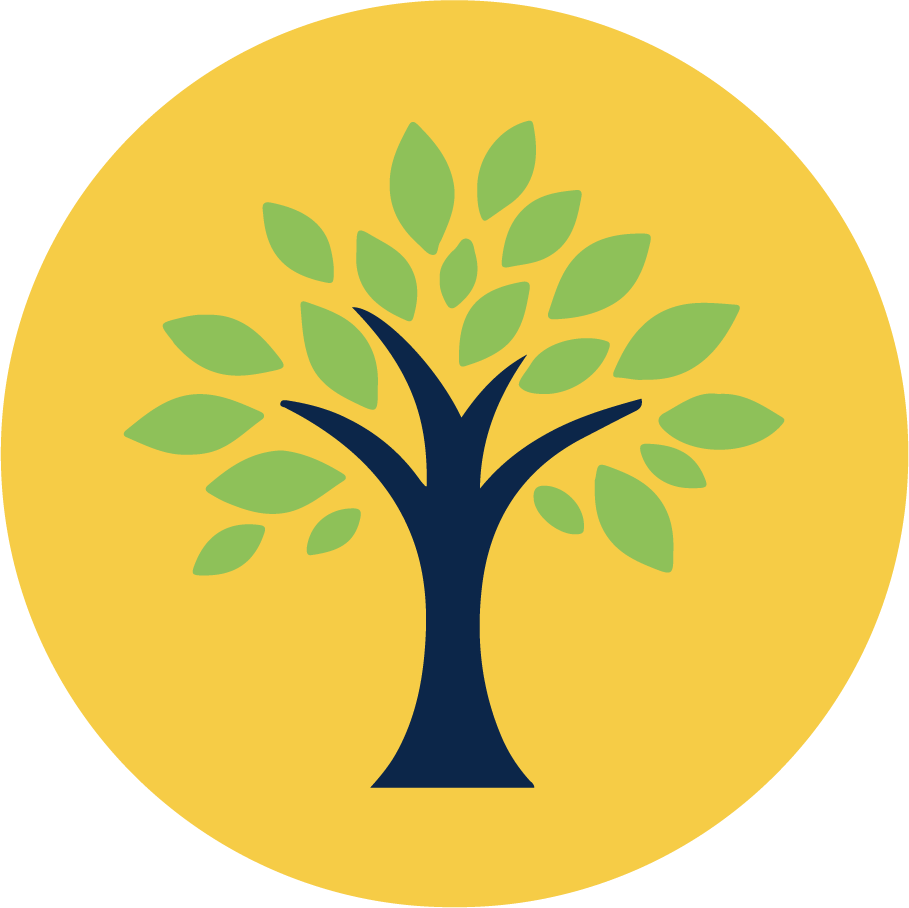Who’s paying for this?
The City of Ann Arbor received funding from the federal government as part of the American Rescue Plan Act (ARPA) and decided (in part based on resident feedback) to use $1.6 million of the money for a guaranteed income pilot program. The Ann Arbor Area Community Foundation contributed funds, and the University of Michigan is also contributing funds in the form of salary for some of the research team.

How does the program work?
The guaranteed income pilot will provide payments of $528 per month for 24 months to 100 low- and moderate-income entrepreneurs. If you are selected, you will be able to use the money however you see fit.
We are partnering with Steady, a group that has a lot of experience in providing guaranteed income payments. If you are selected, you will receive one-on-one assistance from us in getting an account set up with Steady, who will be delivery payments to you directly.
Do I need to be a resident of Ann Arbor to qualify for the program?
Yes, the Ann Arbor City Council decided that this program is only for residents of the city of Ann Arbor.
What are the eligibility requirements?
Because funding for the pilot comes from the American Rescue Plan Act (ARPA), we have to follow guidelines set by Congress. ARPA says anyone receiving assistance must have low or moderate income. For the Ann Arbor pilot program, we are using income cut offs that are based on a percent of the federal poverty line (225%), which are set by the U.S. Census Bureau and vary by the number of people in the household. To see what income qualifies, go here
Also to be eligible, you must be an entrepreneur, have a small business or side hustle, or do gig work. Entrepreneur can mean many different things! We want to include people who have side gigs, are trying to start a business, or who have a business going. This could range from shoveling snow in the winter to having your own lawn care business or anything in between. You might be an independent contractor or a freelancer. Musicians and artists are welcome to apply as well!
What kinds of documents will I need when I apply?
Because federal funds are being used for this pilot, we need to verify some information. You can upload copies of documents or take pictures of the document and upload the picture. Specifically we will need to verify:
1) Your address. Acceptable documentation includes:
- Official mail that is addressed to you (a utility bill, credit card bill, medical bill)
- Voter registration card
- Ann Arbor public library card
- A lease or sublease, mortgage payment, or property tax statement
- Letter from a social service agency confirming your residence (for example, the Delonis Center)
- Other identification with current address
- Driver’s license with current address
2) Your age. Acceptable documentation includes:
- Photo ID showing your date of birth (even if the id is expired)
- Birth certificate
- Passport
- Any of the above documentation if it shows your age or date of birth
3) Your income, which we can verify with:
- Bridge Card or other documentation (including screenshots) showing receipt of programs for people with low income
- Letter from a social service agency or community-based organization confirming eligibility for low-income programs and/or income (for example Avalon Housing, Peace Neighborhood Center, etc)
- State or federal tax return from 2022
- Most recent W-2 or other form from the Internal Revenue Service (IRS) that shows income, such as 1099
Why entrepreneurs?
Starting and sustaining a business is a dream of many people, yet for those with lower incomes, it can be a difficult dream to achieve. This pilot will help us learn whether guaranteed income payments can be an effective way to help some entrepreneurs with their business efforts. For other people, having a business may be an economic necessity, particularly for those whose main jobs may not pay enough or those who are facing high housing and other costs. A guaranteed income may help those individuals scale back on their economic activities and focus on other things that are important to them.

Will my public assistance benefits be affected if I participate?
We are in discussions with the Michigan Department of Health and Human Services and the Ann Arbor Housing Commission and have requested that guaranteed income payments not affect benefits you might receive from them. However, it is likely that some benefits will be affected. If that is the case, we will make sure you know in advance so that you can make the decision about participation that’s best for you.
How will I know if I’ve been selected for the payment and research study?
If you are selected to receive the guaranteed income payment or to be part of the study but not receive the payment, someone from the study team will contact you, using your preferred method of contact (phone, text, email, or an in-person visit if needed). You will be able to set up an appointment with a staff member who will give you an orientation to the program, including the research component.
If you have not been contacted by the time the website says we have finished notifying participants, assume you have not been selected to participate. We will also delete the information you provided. Check the website to stay up to date on the notification process.
When will the payments start?
Payments should start early in 2024.
What happens when the payments stop?
GIG Ann Arbor’s guaranteed income payments are funded for 24 months. Currently, there are no plans to extend the pilot beyond that time. If you are selected to receive a guaranteed income payment we will remind you about this as we approach the end of the pilot.
Can I get immediate assistance while I’m waiting to hear if I’ve been selected?
As researchers, we do not directly provide services or assistance outside the guaranteed income program. To learn more about available local resources, call the 2-1-1 helpline or visit United Way of Washtenaw County’s 2-1-1 website.
>> Resources for Ann Arbor entrepreneurs, gig workers, and small business owners
